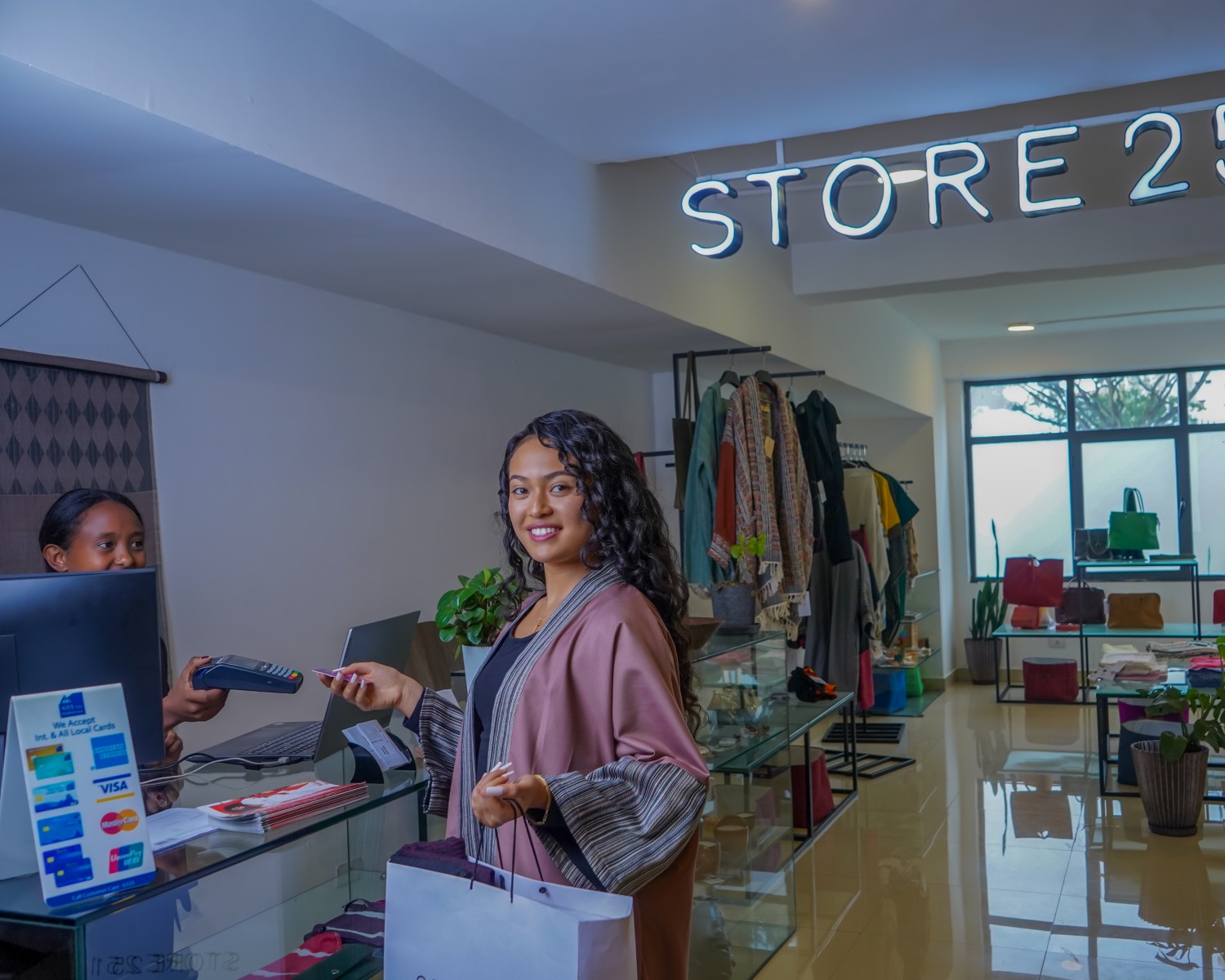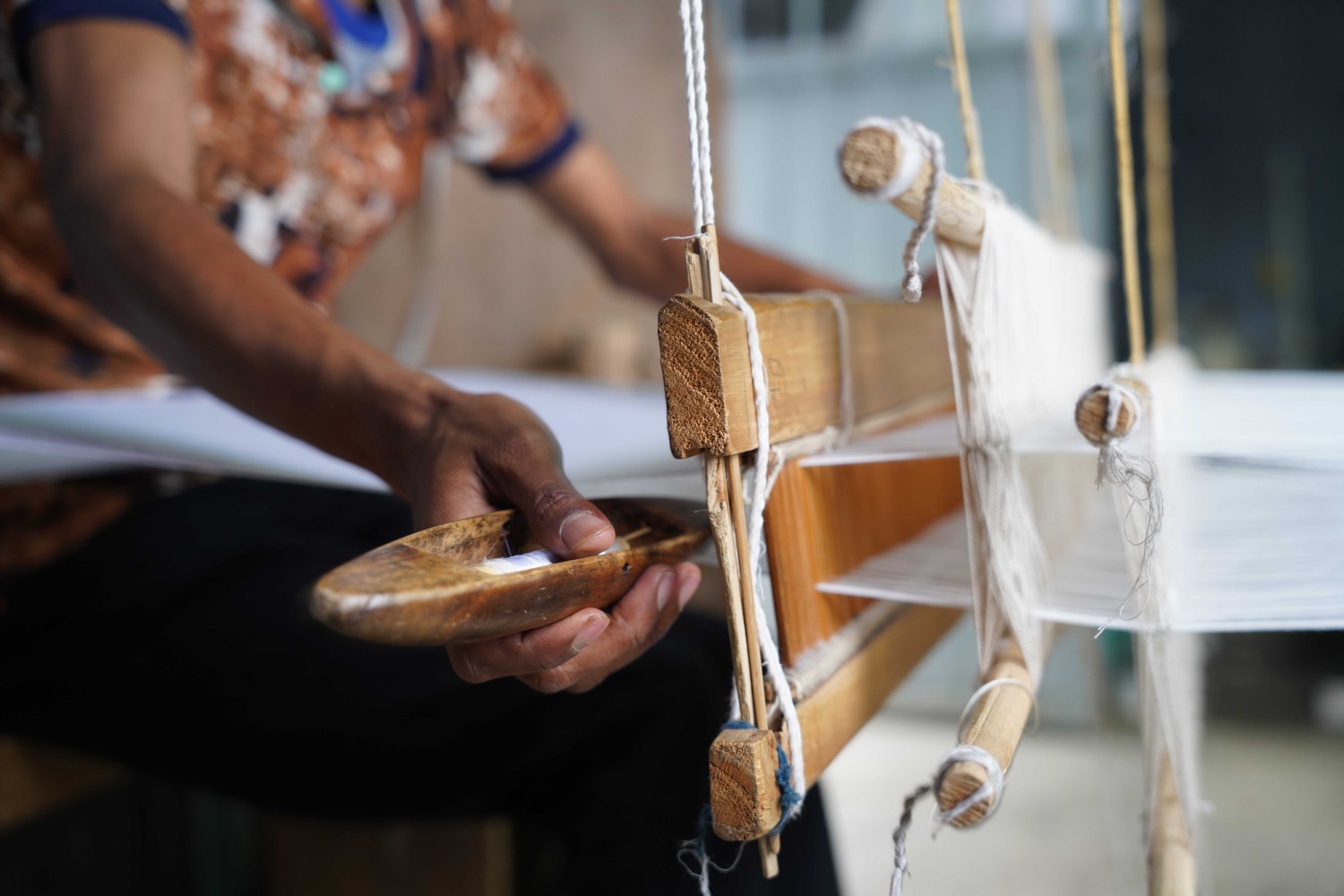The Story of our Beginning

“I often
describe myself as a seeker: A person who wants to learn and understand how
things work—for whom everything depends on honesty and transparency. Years ago,
I was determined to challenge myself by learning the basics of technology, when
working on our online platform; more recently, I was set on persevering when
people began closing their stores to focus on more profitable ventures. The
backbone of Store251 is sustainability and integrity, and that is also my
backbone: it is who I am.
“I had been working at a local hotel—where I was managing the online room distribution—when I begun to question why online services, in Ethiopia, were restricted to the hotel industry. I was certain that we could adapt the system to sell tangible products. I had concurrently observed a disjointedness in the local handcraft market: we lacked a place where we could buy different crafts by different craftsmen. That is when I decided to open an online store where I could curate local artifacts.”
“When we eventually launched Store251, people were wary and vendors were afraid. Customers doubted our integrity, apprehensive of our legitimacy; whereas, vendors had qualms about other vendors—that other craftsmen would plagiarize their designs off the website. Reviews, from our first batch of customers who were primarily family and friends, acquiesced fears of new customers. Our subsequent decision to open a physical store quieted the reservations of our vendors; they could now sell their products solely in-store if they preferred, and more so, customers had a concrete establishment to tie our online presence to.”
“The physical store, unintentionally, brought in our target audience: locals. Expats and diaspora had been our primary customers until then. I suppose they trusted us faster because we had been using a reputable company to host and encrypt the online store front, as well as, popular courier providers—like DHL and FedEx, which ensured 3-5 days delivery—; they recognized these larger companies, and in turn, recognized us.”
“Ironically, shipping has been a persistent problem. Both companies exorbitantly raised their prices after covid. We, initially, covered some of these costs, but it soon became untenable. Customers were, understandably, unwilling to pay for shipping what they had paid for the products. As international shipment came to a halt, local delivery services were on the rise. We relied on their contactless services during covid, and they continue to be both affordable and dependable.”
“Right after the end of lockdown restrictions, the civil war was declared. The tourism sector disintegrated; stores went out of business, and the only thing on my mind was to keep afloat. Keeping our doors open was not about us. Many of our vendors did not have their own stores, so if we closed, so would they. So, we held discounts and promotions while reminding ourselves of our responsibility. It helped to look around because we were not alone—it was a time of global uncertainty—but most of all, we found strength and inspiration in our vendors and customers.”
“I want to smooth out inconsistent patterns and return to the growth we had seen in 2021 and 2022. We had planned many events and sketched out, just as many, visions when we first launched, which we never got to because of the aforementioned challenges. The new year is the year of implementation. Both the online and physical stores are functioning well, so we have the time and space to focus on other projects and to understand the needs of our customers—and for them to listen to us.”
“Though expats are more likely to recognize the value of some of the crafts we sell, it is the responsibility of stores, like Store251, to educate locals on the historical value of these crafts. We challenge the singular vision that most similar stores exhibit by being affordable and accessible. We work to create awareness of local artisans, by hosting events where we encourage craftsmen to share their creative journey, so customers can learn to appraise the value of these crafts for themselves.”
“We open our doors every day because we possess an immovable mission. I am determined that one day all this will not just be for Ethiopia but for the entire continent. I have learned the importance of having a support system. Everyone is involved in what I do: I can depend on my employees, while I am on maternity leave, because I am confident in their training—to feel empowered even when they are running the stores alone. It is because of them and my immediate circle that I can be a mother to four and do what I do—and I hope to extend this support to my culture.”
“Regardless of where we were raised or how long we have lived elsewhere, we, Ethiopians, end up back here. I always longed to come back to Ethiopia when I travelled abroad in the past. I know that I cannot be elsewhere. Most say you can never forget your first love; I say you can never forget Ethiopia—because it possesses a type of love. There is first love, and then, there is Ethiopian love. And we, of course, want Store251 to be the same: to be remembered and to always draw people back, no matter how much time passes, because we lead with care and trust.”

